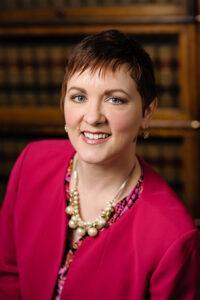HOT COFFEE!—OUR RIGHT TO TRIAL BY JURY UNDER ATTACK
–Shelly Speir
For those of you who have not seen Susan Saladoff’s award-winning documentary, Hot Coffee, you should!
The film was premiered at the 2011 Sundance Film Festival and won the Best Documentary Grand Jury Prize at SIFF that same year. The film is now available on HBO and Netflix, and there were two special screenings here in Tacoma on June 12, 2012.
So what is the film about? Most of us have heard stories about the woman who spilled coffee in her lap and got millions of dollars, right? Hot Coffee tells the true story of Stella Liebeck, the woman who got burned, and highlights three other cases that show how our right to trial by jury is being attacked by big corporations.
How the Media Can Influence Personal Injury Trials in Tacoma and Afar
 The first part of the movie, called “The Public Relations Campaign,” takes an in-depth look at Stella Liebeck’s case against McDonalds. Through interviews and actual trial exhibits, Saladoff shows how the media did not report facts about the case correctly.
The first part of the movie, called “The Public Relations Campaign,” takes an in-depth look at Stella Liebeck’s case against McDonalds. Through interviews and actual trial exhibits, Saladoff shows how the media did not report facts about the case correctly.
This was due to an intentional effort by McDonalds and other large corporate interests to use “mass misinformation” to sway public opinion against consumers who take their claims to court.
As a result, Liebeck’s case became the poster child for “frivolous” lawsuits, when in fact, her case had merit and the jury found in her favor.
At the Tacoma screening I attended, people who saw the truth about Liebeck’s case were shocked that the truth was never reported. “Why weren’t we told about this?” one woman asked.
A Concerning Look at Ceilings Put on Medical Coverages
The second part of the movie, “Caps on Damages,” shows how limits on the amount an injured person can receive in compensation hurts the most badly injured victims. It also forces victims and taxpayers to cover the cost of someone else’s reckless or negligent behavior.
This issue is brought to life through the story of Colin, a boy born with cerebral palsy due to a serious medical error. Because of the cerebral palsy, Colin suffered serious, debilitating brain damage and will need life-long care.
Colin’s parents sued on Colin’s behalf, and a jury awarded Colin $5.6 million dollars. However, because of a state-mandated cap on damages, Colin’s award was reduced to $1.25 million, an amount that will not come close to what he needs for his medical care.
Misinformation…The Media & Our Judicial System
The third part of the movie, “Judicial Elections,” shows how big companies spread misinformation about judges and spend money to elect industry-chosen candidates. Saladoff tells the story of Mississippi Supreme Court Justice Oliver Diaz, who lost his bid for re-election after big business interests found a way to get him criminally prosecuted on false charges.
The last part of the movie, “Mandatory Arbitration,” explains how more Americans than ever are losing their right to trial by jury through mandatory arbitration clauses. Mandatory arbitration clauses are showing up in fine print everywhere—even cell phone bills.
These clauses force consumers out of court and into arbitration, where the arbitrator is chosen by the same company who the consumer believes has wronged him or her. Mandatory arbitrations are more secretive, and arbitrators are not even required to follow the law.
In Conclusion, I Suggest Watching the Documentary Movie Hot Coffee!
Hot Coffee shows the story of a young woman who was drugged and raped by fellow employees, but was not allowed to sue her employer because of a mandatory arbitration clause.
After seeing Saladoff’s documentary, many in the audience with me felt outrage and shock. But how do individuals stand up against big companies? How can ordinary citizens protect their right to trial by jury? One suggestion was to ask a lot of questions.
For example, if you see a story in the newspaper that describes an ongoing lawsuit, contact the reporter and ask for more details.
Another suggestion was to insist that the media report stories accurately—if you see a mistake in a news story, contact the reporter and ask for a correction to be printed.
The goal is to stop “mass misinformation” wherever possible. Once we know the truth, we can protect our rights.